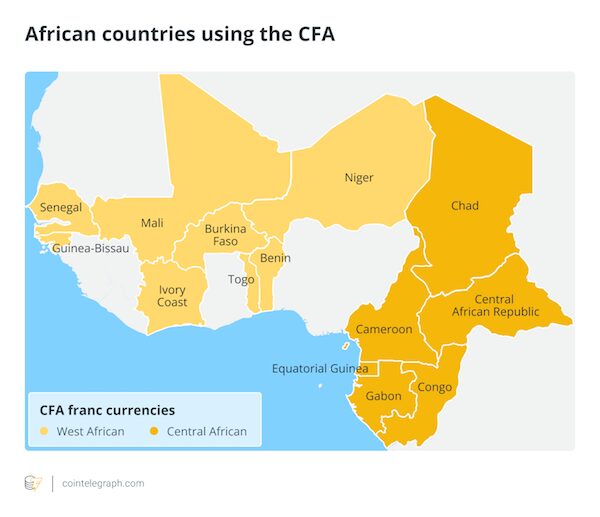Dakar, the capital of the West African nation of Senegal, now boasts an annual Pan-African Bitcoin conference, over 10 merchants accepting Bitcoin, a local peer-to-peer BTC exchange and a budding Bitcoin community.
What’s more, the speed at which Bitcoin’s progress is unwinding is staggering. The city hosted the DakarBTC Days conference just 10 months after the country’s first “in real life” Bitcoin meetup. All of this is despite a brutal bear market that has put a big dent in Bitcoin adoption.
Why is Bitcoin bubbling in Senegal? Is this country on the path to “hyperbitcoinization,” or at least more entrenched Bitcoin adoption and use? Could Senegal be the next country to follow in El Salvador’s footsteps?
I wanted to find out. I had missed out on the inception of Bitcoin Beach in El Salvador in 2019, so I wanted to explore what a bottom-up, Bitcoin-circular economy might look like in West Africa. This is that story so far.
A colonial currency
The West African Economic and Monetary Union CFA franc is an awful currency. The French created it; they control its conversion rate; they even design and print the notes for use in Africa. A Frenchman sitting in the historic university town of Clermond-Ferrand conjures up the designs in use on CFA notes used by millions of Africans across 13 countries — despite the fact that they might never have set foot in Africa.
The CFA is currently pegged to the euro at a fixed rate of 655.957 to one. In 1994, the peg with the former French franc was slashed from 1:505 to 1:100. The currency devaluation, instigated by France and in collaboration with the World Bank and the International Monetary Fund, wiped out the savings of the Senegalese people. To cap it all off, French officials sit on regional central bank boards across French-speaking Africa and still hold substantial powers, including veto rights.
Alex Gladstein of the Human Rights Foundation once explained, “Unlike a typical fiat currency, the system was far more insidious. It was monetary colonialism.”
From Cuba to Turkey, South Africa to Serbia, I have never seen a greater demand or need for monetary emancipation than in Central or West Africa, and the most likely candidate for West Africa’s economic and monetary freedom is Bitcoin.
Making lightning connections
On Twitter in January 2022, I noticed that a few bars in the ex-pat area of Dakar have begun accepting Bitcoin. You can pay for a…
Click Here to Read the Full Original Article at Cointelegraph.com News…
























